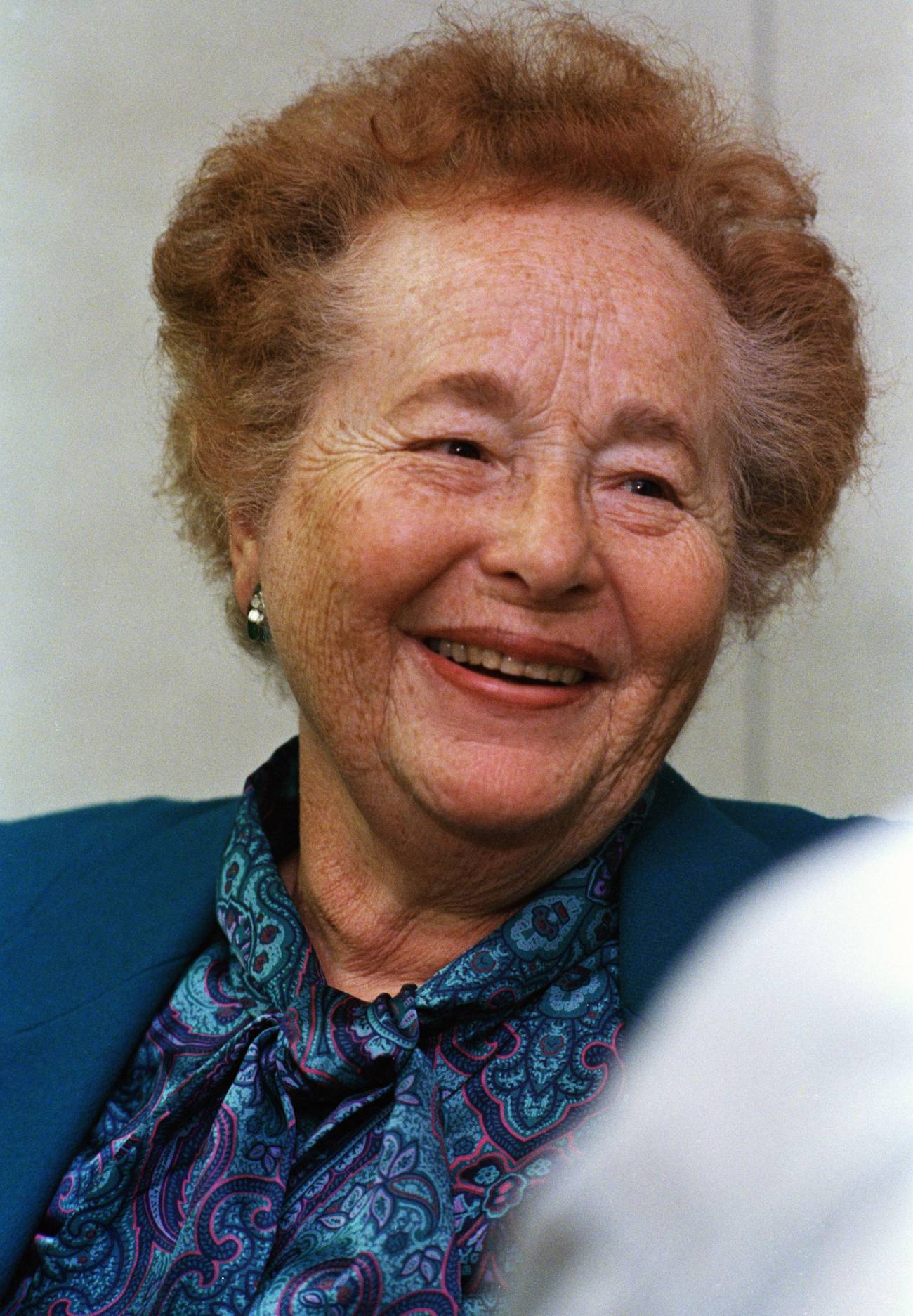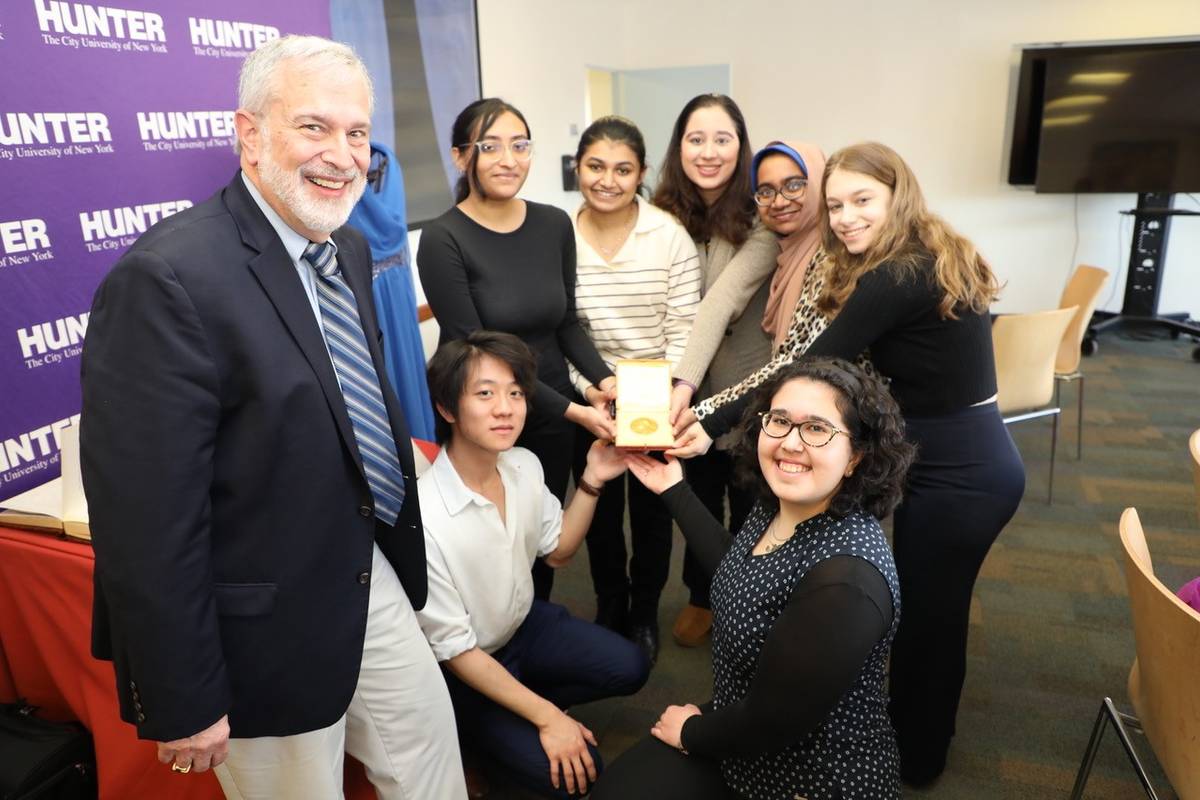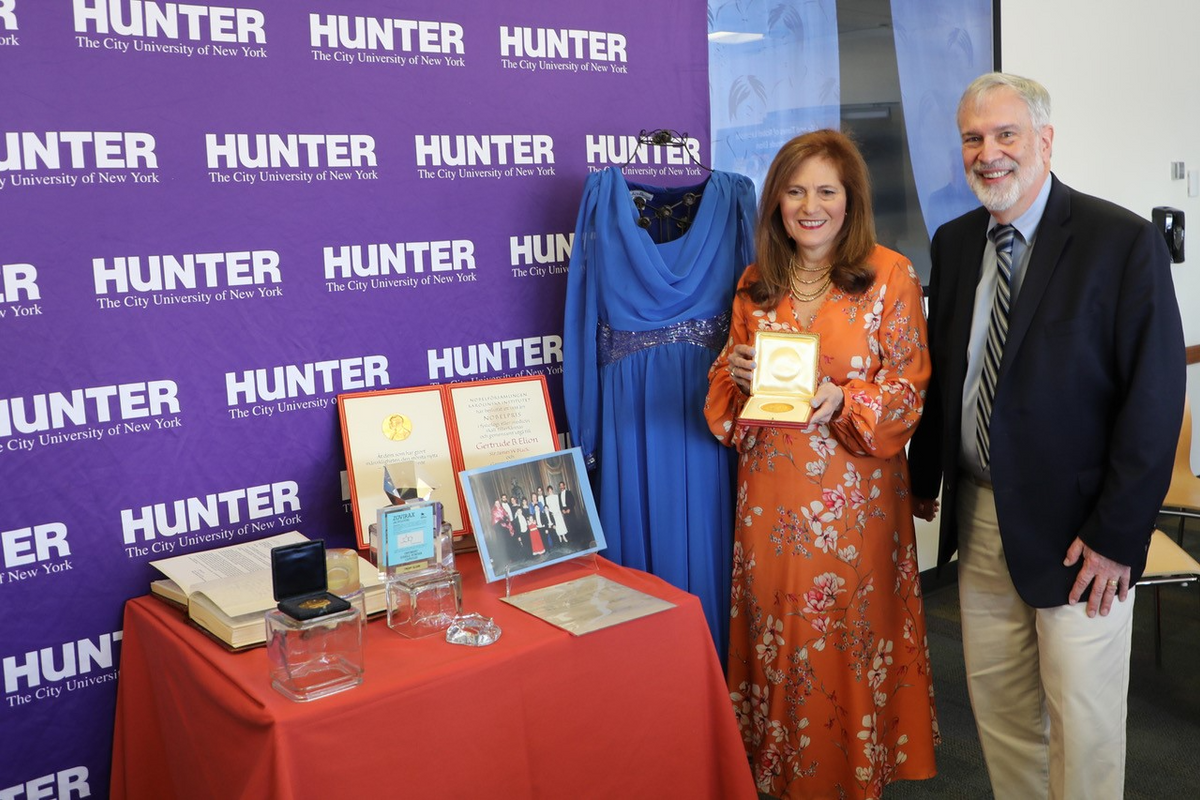Bringing Home the Gold
Scientist Gertrude Belle Elion’s Nobel Prize in medicine is donated to her alma mater, Hunter College




When Gertrude Belle Elion won the 1988 Nobel Prize in medicine, she chose to wear a bright blue dress to the ceremony in Stockholm so she would be visible among the formally dressed, black-clad male honorees. Elion didn’t need bold attire to stand out. Long before she arrived to claim the highest award in her field, she had proved that American Jewish women could compete in the sciences, win recognition, and save lives.
Elion was a Bronx girl who graduated from Hunter College in 1937—when it was known as the “Radcliffe for Jewish women.” Now, this extraordinary biochemist, who died in 1999, will continue inspiring future science stars at her alma mater. That’s because her nephew Dr. Jonathan Elion has donated her actual Nobel Prize medal to Hunter—along with the distinctive blue frock she wore in Sweden. Arriving as it did in the final days of Women’s History Month, the coveted gold medal will glow with special resonance from its new perch at Hunter’s recently redesigned college library.
Of the 224 scientists who have won the Nobel in medicine, only 12 have been female (Elion was the fifth). Yet another of this highly select dozen, also Jewish—1977 honoree Dr. Rosalyn Sussman Yalow (class of 1941)—did her undergraduate work at Hunter, too.

“Trudy” Elion (who shared her own prize with two male scientists) earned the honor for her work on “rational drug design,” a discovery that opened the door to powerful, life-changing medicines like the AIDS remedy AZT and azathioprine, a wonder drug used to prevent rejection of transplanted organs. Her groundbreaking work on antivirals also blazed a path that would lead one day to the development of the safe vaccines for COVID-19. In short, Elion’s remarkable discovery made it possible to deploy drugs that killed disease without harming human cells—including curatives for leukemia, herpes, malaria, sepsis, urinary and respiratory infections, and gout. She was a one-woman scientific revolution. National Geographic called her “the woman who gave the world anti-viral drugs.”
Like many Hunter students then and now, Elion came from a close-knit family of immigrants. Her father, a dentist, had been born in Lithuania, and her mother in Poland. When her European-born grandfather was diagnosed with terminal cancer, young Trudy helplessly watched him die, an experience that inspired her decision to pursue college studies in science and medicine. But where? After graduating from Walton High School, she set her sights on Hunter. Her family had been wiped out by the stock market crash; Hunter was then women-only, charged no tuition, and offered a superb education in the sciences. “Had it not been that Hunter College was a free college, and that my grades were good enough for me to enter it,” she declared after winning the Nobel, “I might never have received a higher education.” Majoring in chemistry, Elion went on to graduate summa cum laude.
But then her story of upward mobility hit an almost inevitable and insurmountable roadblock. Diploma and high honors notwithstanding, she could neither land the research job for which she yearned—nor find an easy path to graduate school after 15 applications for financial aid fell on deaf ears. Such positions were simply not open to women in the 1930s, particularly Jewish women. As she later put it: “I hadn’t been aware that any doors were closed to me until I started knocking on them.”
Instead, Elion enrolled in secretarial school, and after just six weeks of training landed a job as a secretary. Quickly enough, she found a somewhat more engrossing job as a food-quality overseer at the A&P supermarket chain. Her progress proved almost comically slow. Only after a while did she climb the next rung on her career ladder and secure employment at a New York laboratory where her responsibilities included testing the color of egg yolks meant for mayonnaise, measuring the acidity of pickles, and assessing berries for moldiness. Eventually she did score a lab job—but at first was assigned only to testing the resilience of surgical sutures. Frustrated but indomitable, she became a high school teacher.

Four years later, after taking night classes at NYU, she finally earned a master’s degree. But gender bias continued to block her path to a doctorate. Astonishingly, she never received one—a dean at Brooklyn Polytech told her she could pursue a Ph.D. only if she gave up her job—though she did ultimately earn 25 honorary degrees, including one from Hunter. She would also win awards from the American Cancer Society, the National Cancer Institute, and the Multiple Sclerosis Society, as well as the National Medal of Science from President George H.W. Bush, who declared she had “transformed the world.” Appropriately, Elion was the first woman inducted into the National Inventors Hall of Fame.
Long before, she had steeled her determination because of another personal tragedy. In 1941, her fiance, Leonard Cantor, a CCNY graduate in statistics, died of bacterial endocarditis—an infection of the heart now routinely treated with penicillin. Elion remembered that the loss reinforced her resolve to pursue pharmacological research to cure disease. (Included in the trove her family has donated to Hunter are the witty love letters between the two young sweethearts.)
Ultimately, Elion found her niche—and her calling—as leader of a prestigious research group at Burroughs Wellcome, where she did her most acclaimed research, even after her official retirement. In her spare time, she taught pharmacology and experimental medicine as an adjunct professor at Duke University. But thanks to the recent donation, her memorabilia collection will be on display for new generations of aspiring scientists.
As Trudy knew and appreciated, Hunter has continued to serve as a magnet for the daughters—and now the sons as well—of immigrants, many of them the first in their families to attend college. Following in Elion’s footsteps, several Hunter students took time from their academic and work schedules to attend the ceremony at which the Elions presented their aunt’s treasures to the college.
As this extraordinarily accomplished, yet enduringly modest woman put it: “Don’t let others discourage you or tell you that you can’t do it.”
Gertrude Belle Elion did it—and now her gold medal and blue dress that made her a legend 35 years ago will remind women and new Americans they can do it, too.
Jennifer J. Raab is the President of Hunter College.